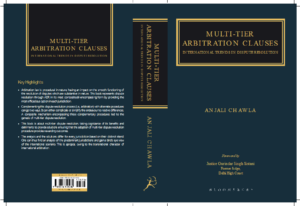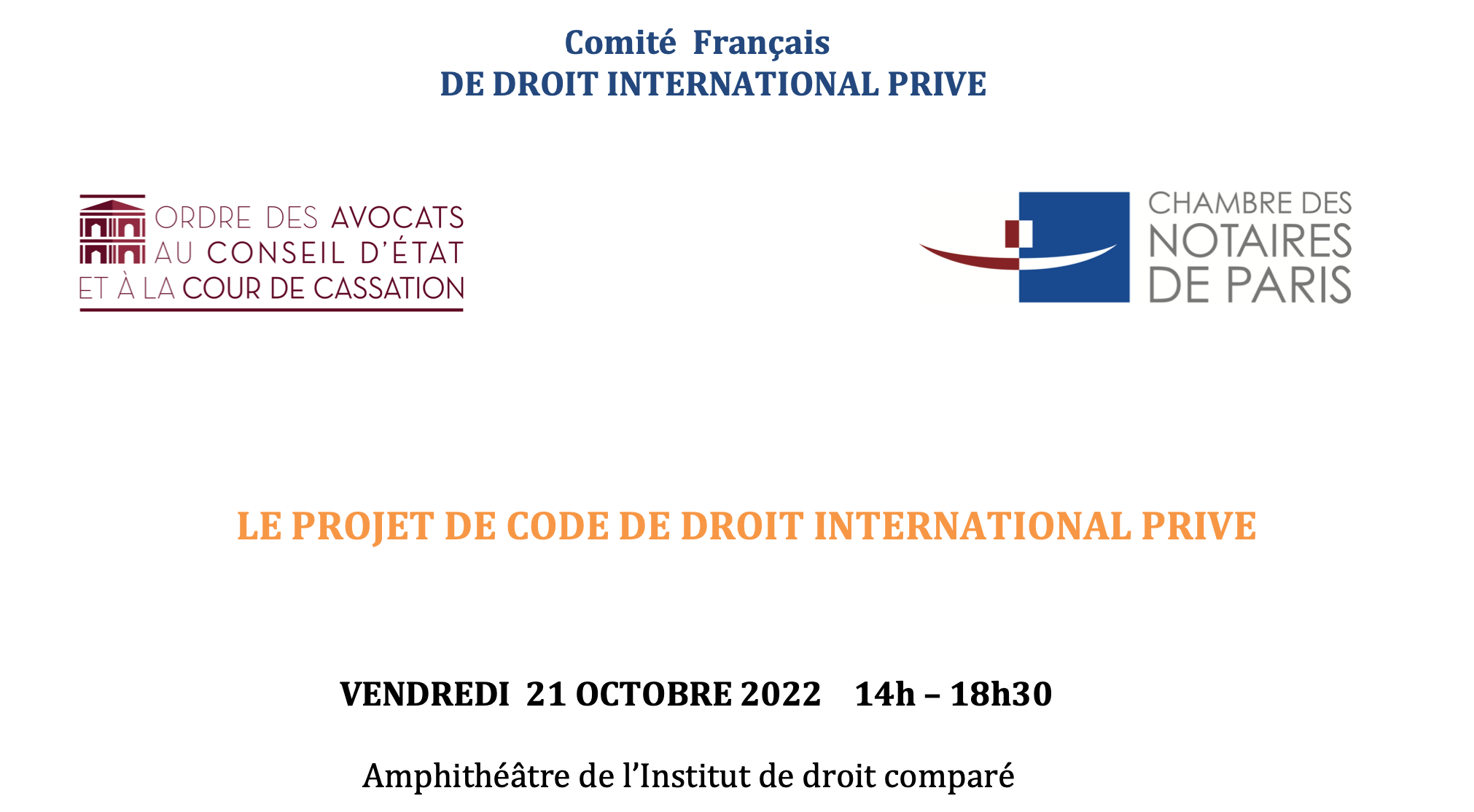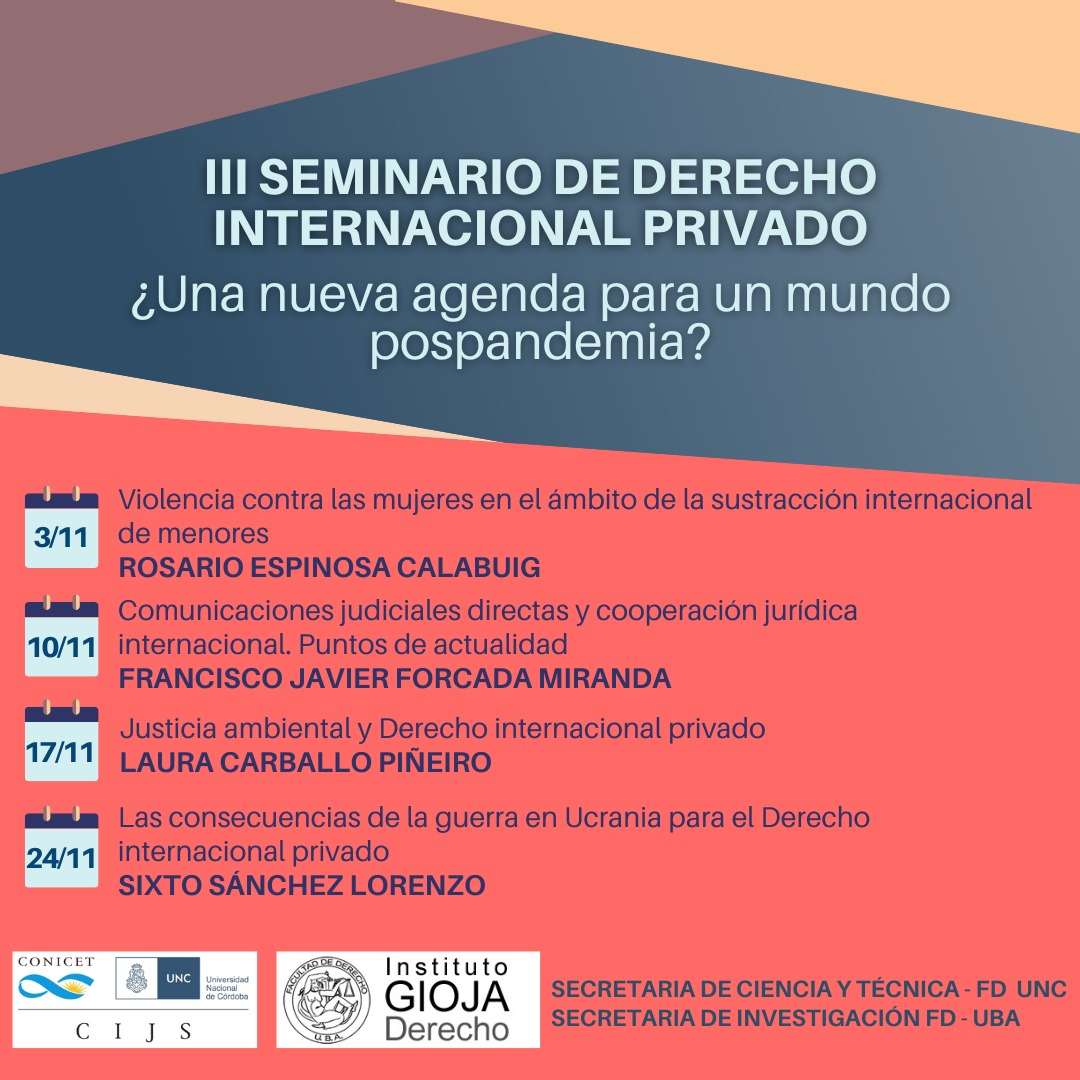The latest issue of the „Praxis des Internationalen Privat- und Verfahrensrechts (IPRax)“ features the following articles:
(These abstracts can also be found at the IPRax-website under the following link: https://www.iprax.de/en/contents/)
U. Janzen/R. Wagner: The German implementing rules for the Brussels II ter Regulation
When the original version of the Brussels II Regulation was adopted in 2000, it was not certain whether this regulation would be such a success. In the meantime, the regulation has become one of the most important legal instruments for judicial cooperation in civil matters. The regulation has recently been revised for the second time. The following article presents the German implementing rules for this recast.
R. Magnus: A new Private International Law and new Procedural Rules for Adoptions in Germany
As a result of two recent reforms the German private international and procedural laws applicable to adoptions have changed quite substantively. Article 22 (1) sentence 1 of the Introductory Act to the German Civil Code (EG-BGB) now refers to the lex fori as the law applicable for all domestic procedures, and section 1 (2) of the Adoption effects Act (AdWirkG) introduces an obligatory recognition procedure for many foreign adoptions. The effects of these and other innovations are examined and evaluated in detail in this article.
H.-P. Mansel: Liberalization of the Private International Law of Marriage and Registered Civil Partnership: Remarks on the Place of Marriage and Registration as Connecting Factors
According to the new proposal of the German Council for Private International Law, the law of the “place of marriage” is to govern the establishment of a marriage or registered civil partnership. The article deals with this proposal and explores the question of how this place is to be determined in the case of an online marriage. It argues for the application of the law of the state where the register is kept.
B. Laukemann: Protecting procedural confidence against the insolvency estate?
According to Union law, the effects of insolvency proceedings on a pending lawsuit are governed by the lex fori – and thus not by the law of the opening Member State (s. Art. 18 European Insolvency Regulation [EIR], Art. 292 Directive 2009/138, Art. 32 Directive 2001/24). At first glance, the distinction between the lex fori and the lex concursus raised here does not cause any major problems of interpretation. But can the lex fori and its regulatory purpose, which is to guarantee protection of confidence and legal certainty in civil proceedings, also be brought into position against the liability regime of foreign insolvency proceedings? A look at Art. 7(2)(c) EIR, which, in turn, allocates procedural powers of a debtor and insolvency practitioner to the lex fori concursus, reveals the difficulties of a clear-cut demarcation between the law of the forum and the law governing insolvency proceedings. The present contribution seeks to pursue this classification problem, equally relevant in legal and practical terms, for the relevant pieces of secondary EU legislation. Recently, this legal question was submitted to the CJEU – due to the liquidation of an insurance company within the scope of the Solvency II Directive. The decision gives rise to critically examine the delimitation approach of the CJEU and to ask in general how the protection of procedural confidence, on the one hand, and insolvency-related liability interests of the creditors, on the other, can be brought into an appropriate balance.
J. Kondring: International Service by WhatsApp: Reflections on the Hague Service Convention and the 1928 Anglo-German Convention in Judgement and Recognition Proceedings
In times of electronic communication, the question arises whether cross-border service by means of electronic communication is possible. The Higher Regional Court (OLG) of Frankfurt a.M. had to decide this question in recognition proceedings for a Canadian-German service by WhatsApp. Neither the Hague Service Convention nor bilateral agreements such as the Anglo-German Convention of 1928 allow service by WhatsApp. In this respect, the article also ex-amines the interaction of section 189 German Code of Civil Procedure (ZPO) and Art. 15 of the Hague Service Convention in both judgment and recognition proceedings, including the relationship to the parallel Anglo-German Convention of 1928. In certain cases, Art. 15 of the Hague Service Convention moves aside and “neutralises” section 189 German Code of Civil Procedure and its legal consequences. For the recognition proceedings, Art. 15 of the Hague Service Convention will also have to be taken into account in the context of the examination of the regularity of service of the document instituting the proceedings.
S. Arnold: Applicability of Article 15(1)(c) Lugano II in cases of subsequent relocation of consumers
In its judgment (C-296/20), the ECJ follows the consumer-friendly course already taken in the mBank decision. It interpreted Article 15(1)(c) Lugano II (and by doing so also the corresponding Article 17(1)(c) Brussels Ibis Regulation). The court clarified that the provision governs the jurisdiction of a court also in such cases where a consumer who has contracted with a professional counterparty subsequently relocates to another contracting State. Thus, it is not necessary for the cross-border activities of the professional party to have already existed at the time the contract was concluded. Rather, the subsequent move of the consumer also constitutes the “pursuit” of the professional or commercial activity in the consumer’s member state. Consequently, the court strengthens the position of consumers. Even in the event of a subsequent move, they can rely on the (passive) forum of protection of Article 16(2) Lugano II and the (active) forum of Article 16(1) Lugano II at their place of residence. The burden that this decision places on the professional counterparty – the risk of foreign litigation even if the matter was purely domestic at the time the contract was concluded – seems reasonable, as choice of forum agreements (Art. 17 No. 3 Lugano II) remain possible as a means of protection.
A. Staudinger/F. Scharnetzki: The applicable law for the internal settlement between two liability insurances of a tractor-trailer combination – Karlsruhe locuta, causa non finita.
If in a tractor-trailer combination the owners of the tractor unit and the trailer are not the same person and two different liability insurers cover the respective operating risk, the question arises as to the internal settlement between the two liability insurances. Here, first the conflict-of-law issue to be dealt with is the source of law that is to be used to determine the relevant statute for recourse. In its decision of 3 March 2021, the Federal Court of Justice endorsed an alternative approach based on Article 19 of the Rome II Regulation and Article 7 para. 4 lit. b) of the Rome I Regulation in conjunction with Article 46d para. 2 of the Introductory Act to the German Civil Code (EGBGB) for a situation in which a German liability insurer of the tractor seeks half compensation from a Czech trailer insurer. In the opinion of the authors, the IV. Civil Senate had, in light of the European Court of Justice’s decision of 21 January 2016 in the joined cases C-359/14 and C-475/14, an obligation to refer to the Court in Luxembourg under Article 267 para. 1 lit. b), para. 3 TFEU. So, the solution via Art. 19 Rome II Regulation seems hardly convincing, at most a special rule on conflict of laws like Art. 7 para. 4 lit. b) Rome I Regulation. Whether and to what extent Article 7 para. 4 lit. b) Rome I Regulation can be instrumentalized to enforce § 78 para. 2 VVG old version via Article 46d para. 2 EGBGB, however, should have been finally clarified by the European Court of Justice. In particular, it seems doubtful whether Article 46d para. 2 EGBGB as a national rule, which goes back to Art. 7 para. 4 lit. b) Rome I Regulation, allows a provision such as § 78 para. 2 VVG old version to be applied as a mere recourse rule between two insurers. This applies all the more since no special public interests or interests of injured parties worthy of protection are affected here.
C. Mayer: Relevance of the place of marriage for determining the applicable law in relation to the formal requirements of proxy marriage and online marriage
The decisions of the Federal Court of Justice and the Düsseldorf Administrative Court concern a double proxy marriage in Mexico and an online marriage via live video conference with an official from the US state of Utah. In both cases, the spouses were themselves in Germany. Both decisions focus on the conflict of law determination of the applicable law in relation to the formal requirements of marriage. Due to the German conflict of law rules in Art. 11 and Art. 13 Para. 4 EGBGB, the place of marriage is decisive. The Federal Court of Justice concludes that the double proxy marriage took place in Mexico, which is why the marriage was formally valid under the applicable local law. The Dusseldorf Administrative Court rules that the online marriage was concluded in Germany, so that only German law is applicable and the marriage is therefore formally invalid due to the lack of participation of a registrar. Both cases reveal inconsistencies in German conflict of laws.
S. Deuring: The Purchase of Trees Growing in Brazil: Not a Contract Relating to a Right in rem in Immovable Property or a Tenancy of Immovable Property
ShareWood, a company established in Switzerland, and a consumer resident in Austria had entered into a framework agreement and four purchase contracts for the acquisition of teak and balsa trees in Brazil. When the consumer demanded the termination of the purchase contracts, the question arose of whether this demand could be based on Austrian law, even though the parties had agreed that Swiss law should apply. Siding with the consumer, the ECJ ruled that contractual arrangements such as the present one cannot be considered contracts relating to a right in rem in immovable property or tenancy of immovable property pursuant to Art. 6(4)(c) of the Rome I Regulation. The non-applicability of this provision entails the applicability of Art. 6(2) cl. 2 of the Rome I Regulation. According to the latter, a choice of law may not have the result of depriving consumers of the protection afforded to them by provisions that cannot be derogated from by agreement by virtue of the law of the country where the consumer has his habitual residence. In consequence, the consumer could, in fact, base his action on Austrian law.
C. Benicke/N. Suchocki: Judicial approval for disclaimer of interests given by parents for their minor children – Polish cases of succession at German courts and the role of the special escape clause in Art. 15 (2) CPC 1996
Polish probate courts demand for judicial approval of any disclaimer of interest given by parents for their minor children, even if such an approval is not required under the law applicable according to Art. 17 of the Child Protection Convention 1996. If German law is applicable due to Art. 17 CPC 1996, in most cases a judicial approval for the disclaimer of interest is not required according to § 1643 (2) p. 2 BGB. As a consequence, German family courts having jurisdiction to issue a judicial approval according to Art. 5 (1) CPC 1996 cannot do so, because under German law, applicable according to Art. 15 (1) CPC 1996 no judicial approval can be issued if not required by the substantive law applicable according to Art. 17 CPC 1996. This leads to the situation that no valid disclaimer of interest can be made, even though both jurisdictions would allow it in a purely domestic case. Therefore, the question arises as to whether in such cases a German family court may issue a judicial approval due to Art. 15 (2) CPC 1996, which exceptionally allows to apply or take into consideration the law of another State with which the situation has a substantial connection. One of the various regulatory purposes of the special escape clause in Art. 15 (2) CPC 1996 consists in allowing the court to adjust the lex fori in order to solve an adaptation problem as it is in this case. The Higher Regional Court Hamm issued such a judicial approval in taking into consideration that the Polish law requires a judicial approval for the disclaimer of interest. We agree with the OLG Hamm in the result, but not in the justification. As Art. 15 (2) CPC 1996 refers only to Art. 15 (1) CPC 1996 the taking into consideration of Polish law cannot overrule that the law applicable according to Art. 17 CPC 1996 does not require a judicial approval. To solve the adaptation problem, it suffices that German law applicable according to Art. 15 (1) CPC 1996 is modified in so far that it allows the formal issuance of a judicial approval even though such an approval is not required by the substantive law applicable according to Art. 17 CPC 1996.
R. Hüßtege: German procedural law for obtaining a decision that the removal or retention of a child was wrongful – present and future
Art. 15 of the Hague Convention on the civil aspects of international child abduction requests that the applicant should obtain from the authorities of the State of the habitual residence of the child a decision that the removal or retention was wrongful within the meaning of Article 3 of the Convention. The procedure for obtaining the decision is regulated incomplete in the German implementation law. Most of the problems raised will, however, be remedied by the reform of the German implementing act.
P. Schlosser: Recognition even if service of the document initiating the proceedings had not taken place?
The author is submitting that Art. 22 of the Convention on the International Recovery of Child Support and Other Forms of Family Maintenance provides only one alternative for refusing recognition to a maintenance Judgment (“may be refused”) and that, therefore, more liberal provisions in national Law are upheld. The German code of civil procedure, § 328, seems not to be more liberal, but must be seen in the light of the overwhelming principle of safeguarding the right to be heard in court. Yet, this principle is well safeguarded, if the proposed victim in the subsequent proceedings of exequatur gets a chance to assert what he would have asserted in the original litigation but, thereby, he had no chance to achieve a different result. Under these circumstances the contrary solution would amount to a refusal of justice to the other party.
B. Heiderhoff: Refugees and the Hague Child Abduction Convention:
The ECJ held that the removal of a child cannot be wrong ful in the sense of Article 2(11) of Regulation No 2201/2003 (now Article 2 sec 2(11) of Regulation No 2019/1111), if the parent has complied with a decision to transfer under Regulation (EU) No 604/2013 by leaving the country. This decision makes a valid point, but seems too general and reaches too far. The contribution shows that the integration of family law and migration law is insufficient and urges better coordination between the actors to achieve better protection of the child.
T. Frantzen: Norwegian International Law of Inheritance
Norway adopted a new act on inheritance and the administration of estates in 2019. The act came into force on 1 January 2021. The new act is based on the principles of the act on inheritance from 1972 and the act on administration of estates from 1930. This means that descendants may claim a forced share of 2/3 of the estate, however with a limitation of approximately 150,000 Euro. With the new act the amount has been increased, and it is regulated each year. A surviving spouse may, as before, claim a legal share. The spouse may alternatively choose to take over the so-called undivided estate. This means that the division of the estate is postponed.
Until the new succession act was adopted, Norwegian choice of law rules on succession were based on customary law. The general principle was that succession was governed by the law of the State in which the deceased had her/his last domicile, and that there was no, or a very limited space, for party autonomy.
The new act decides that the administration of estates may take place in Norway if the deceased had her/his last habitual residence in Norway. When it comes to succession, the main rule is that succession is governed by the law of the State where the deceased had her/his last habitual residence. Party autonomy is introduced in the new act, as a person may choose that succession shall be governed by the law of a State of which he or she was a national. The decision on the choice of law is however not valid if the person was a Norwegian citizen by the time of death. The few provisions on choice of law are based on the EuErbVO.
C. Jessel-Holst: Private international law reform in North Macedonia
In 2020, North Macedonia adopted a new Private International Law Act which replaces the 2007 Act of the same name and applies from 18.2.2021. The new Act amounts to a fundamental reform which is mainly inspired by the Acquis communautaire. It also refers to a number of Hague Conventions. The Act contains conflict-of-law rules as well as rules on procedure. Many issues are regulated for the first time. The concept of renvoi is maintained but the scope of application has been significantly reduced. As a requirement for the recognition of foreign judgments the Act introduces the mirror principle. As was previously the case, reciprocity does not constitute a prerequisite for recognition and enforcement.




